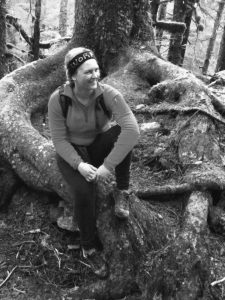Cady Kuzmich, News Editor
Rebekah Obenauer spent this past summer working as a sea kayak guide in Alaska- an opportunity that wouldn’t have been possible if it weren’t for the outdoor leadership program, a program currently being dismantled. For three months, Obenauer lived in a bus with no running water and washed her clothes in a nearby creek. The self-proclaimed introvert described how leading kayak trips helped her break out of her shell and grow as a person ,saying the experience “changed my whole life.” She went on to say “Once you can get away from modern conveniences you start looking at what’s important and who you are as an individual.” That was when she knew how important outdoor education was to her.
Unfortunately for students like Obernauer, the status of the outdoor department at SUNY Oneonta is swiftly diminishing. With a dwindling faculty, little support from the college and limited class options, students interested in expanding their outdoor skills are out of luck. There is no outdoor leadership major and the minor has just recently been suspended. The department faculty is so small that current minors, like Obernauer, doubt there will be enough classes to fulfill the minor requirement before they graduate.
A senior environmental science major and outdoor leadership minor, Obenauer has written a petition to save the outdoor leadership program at SUNY Oneonta. The petition calls for the return of the outdoor leadership minor and more classes so that students can complete the minor. Obenauer has launched a Facebook page, “Continue Outdoor Education at SUNY Oneonta”, in order to gain support for the program and her petition.
According to students and faculty alike, outdoor education has been denied the respect it deserves. Many belittle the program, arguing that the classes are “just for fun.”
Since when have we frowned on classes that are truly engaging students? Do we value slideshow PowerPoint classes and textbook lessons more than life experience? While these classes may actually be some of the only enjoyable classes on campus, the skills taught in outdoor leadership programs are valuable in terms of survival and an increasingly competitive job market. Field sciences, biology and geology all rely on these skills. Outdoor leadership classes could give science students an edge, since people with the skills to backpack and scuba dive propel scientific discoveries to untouched places.
Obenauer explained what she has learned through her experience in outdoor leadership, saying “I know I can accomplish more than I would ever have thought…and its not because I know how to light a stove.” She explained how the program’s importance doesn’t lie in individual skills like lighting a stove or setting up camp, but in the leadership and personal growth that comes along with it.
SUNY Oneonta does not have an Outdoor Department. Outdoor Leadership is a minor within the Department of Physical Education, the faculty and staff roster for which lists 35 members (http://www.oneonta.edu/academics/physed/faculty.asp), 34 of whom teach.
While there’s nothing objectionable about author’s support of coursework in this area, the statement that “these classes may actually be some of the only enjoyable classes on campus” seems cavalier. Faculty members who teach within other disciplines do so with great commitment and attention to their students.
Although the article does not mention it, SUNY Oneonta’s Outdoor Adventure Club (http://www.oneonta.edu/outdoors/index.html) offers a regular calendar of events, such as multiple-day hiking trips, white water rafting, kayaking and rock climbing.
I agree that the “cavalier” sentence quoted above should have been cut, my experience at SUCO has been excellent thanks to passionate and committed professors.
Thank you for posting the link to the physical education faculty page. How many of these 35 teach outdoor leadership courses?
The outdoor adventure club is a great addition to campus but can these trips fulfill minor requirements?
After talking with instructors and students, I’ve learned that minor is no longer offered to new students. Students who are already on track can continue with the minor but are worried there won’t be enough course offerings to complete the minor.
Correct me if I’m wrong.
As a current student and future structural geologist, it saddens me that this program is no longer available. Many of the courses I’ve taken and would like to take are either preferred or required for internships now and jobs in the future. These classes aren’t “just for fun,” as the author stated. While many people do many of the activities taught in the minor, I think it’s important to realize that these are skills that all future field scientists will need for their future careers.
As far as the Outdoor Adventure Club — I think it is an excellent and fun club to be able to participate in, but many of the activities we do are not “formal training” or for certificates (which are needed for many internships and jobs in the field of science). They are great as hobbies or ways of life, but these activities are not “career centered,” like classes in the minor are.
I think it’s up to the State Times to get this right. A good primary source of information about Outdoor Leadership is Dr. Janet Day, who currently is serving as chair of the Physical Education Department, under which the minor is organized.
With regard to the question about the Outdoor Adventure Club, I think you’re asking the wrong question to the wrong person. A better question would center around what students value: Are camping, hiking, rafting, climbing, kayaking, etc. worthwhile activities if they’re not credit-bearing?